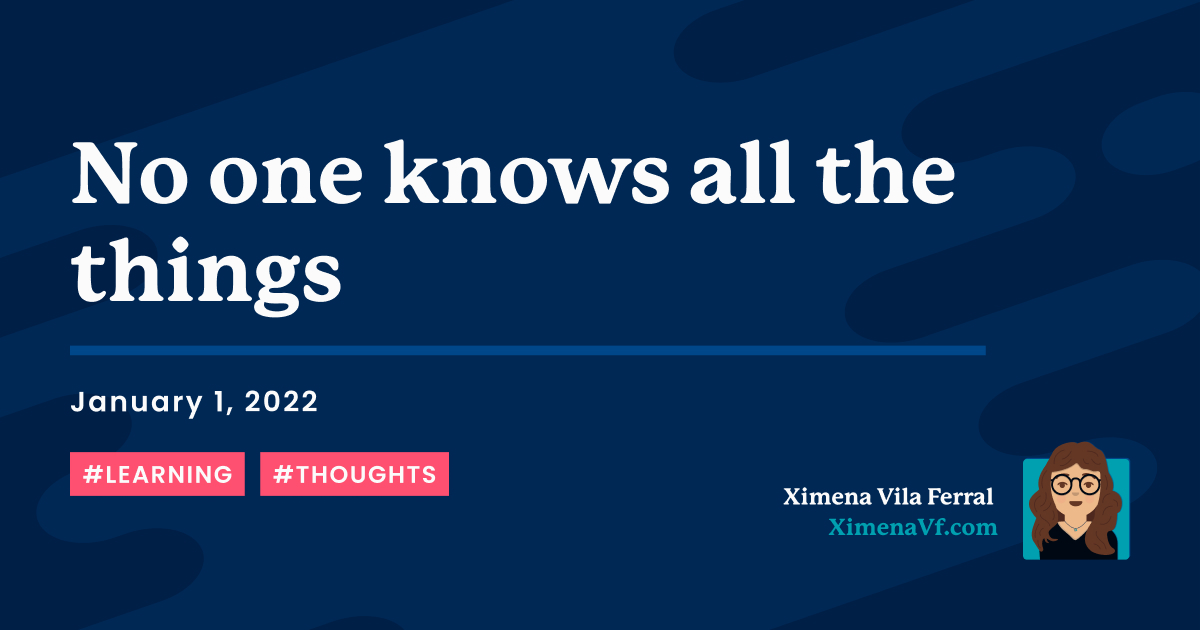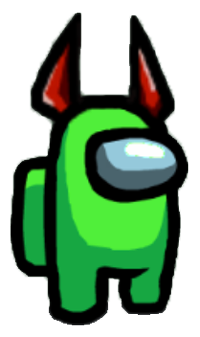No one knows all the things
I was going through my drafts and found this old one that I wanted to write about after a conversation in my favorite corner of the internet. (That's Cassidoo's private Discord server by the way and if you are not there you really should be. It's a great developer and other cool people community. Join us by supporting her on Patreon). Anyway, someone there shared this tweet by Emma Bostian:
Did you know you can use aliases to turn multiple, long terminal commands into one short command?
— Emma Bostian 🐞 (@EmmaBostian) May 10, 2021
I didn't and IT IS LIFE CHANGING.
Instead of having to \`cd\` into nested folders and run a long command, I can type ONE COMMAND. pic.twitter.com/BG5CpuSMPL
This is the conversation that followed:
so that's an interesting thing. Emma's been doing amazing things, and her only discovering this bit about the command line is weird, because it's something I imagine most people doing amazing things already know
To which someone else replied,
I don't think it's weird. Everyone has gaps in their knowledge
and then,
it's not weird that she didn't know. It's weird that I assumed she did
That last line, "It's weird that I assumed she did." It's true we look at other people and make assumptions based on what we see, on what they share. However, that is not enough to know their whole story, everyone has different experiences and you cannot compare them equally. Just because someone knows this one little thing it does not mean they are better than you, or the other way around. My reply was something along these lines:
I love seeing when people we assume must surely know all the things, actually don't and maybe we know a tiny little thing and they didn't. It's humbling and reminds us that we are all humans in our own paths.
It is a great reminder that no one knows all the things as smart or experienced as they are. We all have different experiences and we can learn from others but also teach others. It's common to think that as someone early in their career that all we can do is learn from others that have been around longer and that we can't teach them anything. The reality is a different one however, we each learn our own way, on our own path at different times. We should also be open to hear from people who we may think are "less experienced" because they probably know something you don't or have a better way of explaining a concept that is hard for you or you thought you knew.
Just yesterday I was talking to my uncle, who used to be a CS professor, about being a teacher. What makes a "good" or a "bad" teacher? In our opinion, a better teacher is one that does not pretend to know all the things and cannot or will not listen to their students but one that can admit they don't know everything and is willing to learn from them as well. It goes both ways. Students learn from a teacher, whether it's at school or as junior from a senior position at a job, but the one teaching can also learn a lot from their students.
Someone else also linked to this article by Dan Abramov, Things I Don’t Know as of 2018 and there are a few quotes there that I really liked.
People often assume that I know far more than I actually do. That’s not a bad problem to have and I’m not complaining. (Folks from minority groups often suffer the opposite bias despite their hard-earned credentials, and that sucks.)
– Dan Abramov
This happens a lot when you keep up with others in your industry or interests. For example I follow many developers and designers on social and we see all these people creating and sharing amazing things and we strive to do similar. What we don't often see is how long it took them to get there or how many times they failed. So, we assume they are these super humans that we want to be like but then, well, it's unrealistic so we may burnout trying to be that. All of these people have put in the work and I can assure also suffer from "impostor syndrome" just like you do. It's only natural to compare ourselves to people we admire but we can't forget we are all still… human. Don't stress. This is why I love seeing more and more people now who share their work and learning process, their failures, their insecurities, but also their wins, and their knowledge.
We can admit our knowledge gaps, may or may not feel like impostors, and still have deeply valuable expertise that takes years of hard work to develop.
– Dan Abramov
I’m aware of my knowledge gaps (at least, some of them). I can fill them in later if I become curious or if I need them for a project. This doesn’t devalue my knowledge and experience. There’s plenty of things that I can do well.
– Dan Abramov
Now, those knowledge gaps do not devalue what we already know, what we've messed up, what we've fixed, and all that we've learned. Those experiences are extremely valuable to us and to others. They make it easier to keep moving forward and get up faster or help others get up and keep going.
Like always, I ramble so I shall stop here with this reminder on the first day of the year as I resume my learning journey and prepare to somehow share it with whoever may find it helpful.

